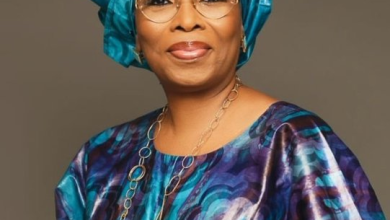
Women’s Rights Advocate, Radical Feminist and Legal Practitioner Deborah Ekone has called for stricter measures and consequent rehabilitation of male abusers in Nigeria.
Deborah said this in a panel session organised by Naija Feminists Media as the organisation concludes its 2024 “16 Days of Activism” campaign with a compelling discussion on its X (formerly Twitter) space on Dec. 10, 2024, at 6 p.m.
Speaking alongside a panel of esteemed feminist speakers across diverse professions, including women’s rights activists, legal practitioners, law enforcement agents, and human rights advocates, Deborah extensively spoke on “Facilitating Behavioural Change from Male Perpetrators of Violence Against Women and Girls,” which was the topic of discussion.
In a bid to address the societal and systemic barriers to eradicating violence against women and girls, she began by acknowledging women’s progress over the years in asserting their rights and autonomy. However, she emphasised the overwhelming amount of work still required to dismantle deeply ingrained systems of patriarchy and violence.
“Men who usually abuse women and children are often intimately connected to them — fathers, boyfriends, brothers, uncles. If men are meant to protect, how come these same men become the evil women need protection from?” she asked.
Speaking further, Deborah also highlighted the inadequacies of Nigeria’s legal system in addressing gender-based violence. While laws exist to protect women and children, Deborah argued that poor implementation remains the major obstacle. She noted that societal factors, including religion and deeply ingrained family values, perpetuate the perception of women as inferior to men, making it challenging to achieve true equality.
“The fact that men can get away with their abusive actions is why a police officer can dare to rape a girl in custody,” Ekone said, pointing out the stark contrast with Western nations where such laws are more strictly enforced and implemented. She stressed the need for male perpetrators to face the full consequences of their actions as a precursor to rehabilitation.
Beyond punitive measures, Deborah also advocated for the establishment of rehabilitation centres specifically designed for male abusers, coupled with efforts to change fundamental mindsets. “We should not view abuse as normal; it is not normal. If we can’t change the fundamental thinking, nothing will work,” she said.
Deborah also called for women to assert themselves in positions of power and influence to drive systemic change. While she expressed scepticism about men’s role as allies, she acknowledged the necessity of male involvement in achieving meaningful progress.
The discussion pointed out the urgent need to address the root causes of male violence against women and girls and to create a society where abuse is neither normalised nor tolerated. The session ended with a call to action for stronger enforcement of existing laws, societal re-education, and a collective commitment to ending violence against women and girls.
As the 16 Days of Activism campaign came to a close, participants left with a renewed sense of purpose and a clear understanding of the work still needed to achieve a safer and more equal society.






